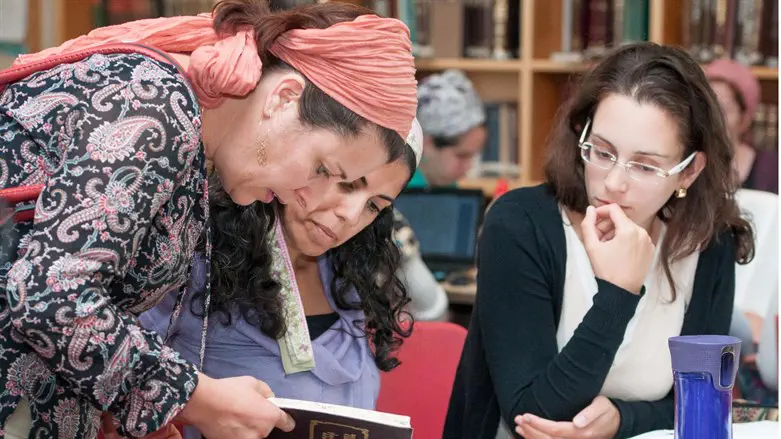
Serach
What do we know about Serach, the daughter of Asher?
The Torah mentions her in today’s sidra, but so fleetingly as to be tantalising. Listing the tribes, it comes to Asher and after specifying his sons it merely adds, "And the name of the daughter of Asher was Serach" (Num. 26:46). Nothing more, no comment about her achievements.
The Midrash comes to our aid. It explains that she was a most unusual woman. Brought up in the home of her grandfather Jacob, she was known for piety, modesty and even prophecy.
When Jacob was grieving for his lost son Joseph, she assured the patriarch that Joseph was still alive and that father and son would meet again. When the brothers returned from Egypt and affirmed that Joseph was alive, legend says that she sat outside Jacob's tent and sang "my Uncle Joseph lives" so that the good news would be told to him gently and not shock the elderly man.
As a reward Jacob promised her that she would have a very long life, and indeed she was still alive centuries later at the time of the Exodus.
When the Israelites were about to leave Egypt, Moses was desperate to trace the bones of Joseph so that they could accompany the people through the wilderness (the sages said, "All Israel occupied themselves with booty but Moses occupied himself with the commandments"). It was Serach who told him, "The Egyptians made a metal coffin for him which they fixed in the river Nile so that its waters should be blessed".
Moses went and stood on the bank of the Nile and exclaimed, "Joseph, Joseph! The time has come which the Holy One, blessed be He, promised, when He said, ‘I will deliver you,’ and the oath which you imposed upon the Israelites to carry your bones out of Egypt (Ex. 13:19) has reached the time to be fulfilled. If you show yourself, well and good; otherwise we are free of your oath." Immediately Joseph’s coffin floated on the surface of the water (Sotah 13a).
There is a tradition that Serach was buried at Ispahan in Persia, where the principal synagogue was named in her honour.
The rights of women
The portions at the end of Sefer Bamidbar (an example is Parashat Pinchas) bring to our attention the problem of the daughters of Tzelof’chad who felt left out of history because they were denied legal rights.
The Torah takes up their case and assures us that they would not suffer because their father died without sons. The story is addressed by Rev Ephraim Levine who makes the point that the daughters "succeeded, apparently without much difficulty, in establishing their rights to inherit".
These days there are many Jewish women who felt slighted by the law, and one of the great achievements of recent decades has been the dignified way in which women’s position in Jewish life has been ameliorated. Not, as Rav Moshe points out, by political militancy but by careful and respectful study of the halakhic sources.
Rabbi Dr. Raymnd Apple, AO RFD is Emeritus Rabbi of the Great Synagogue, Sydney. He is now retired and lives in Jerusalem, where he publishes OzTorah, a weekly email list and website with Torah insights from an Australian perspective..